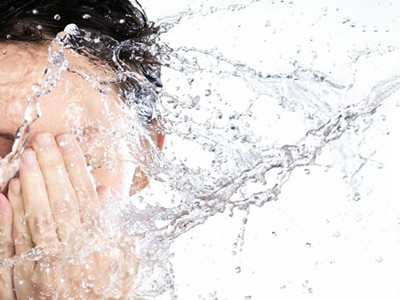Most of us think that cleaning is a very basic task, even if you are exhausted or slightly drunk – of course, it can. But it turns out that there is a lot more than soap and water, says Dr. Doris Day, a New York City dermatologist and author of the forgotten facelift. “There are so many delicate, gentle cleansers that don’t peel off the skin. Using the right cleanser can make moisturizing and anti-aging products absorb more effectively.” Obviously, old-fashioned splashes and scrubs won’t work. Here, get the new rules for the freshest faces.
1. Washing away
This is more like a two-step process. “Before you wash your face, take off your cosmetics,” said Dr. Montclair, New Jersey, Dr. Jeanine Downie, MD. “Many cleansers do not completely remove concealers or foundations, especially around the eyes and nose.” Use oily creams, emollients or cleansers to dissolve stubborn sunscreens and cosmetics. Follow the warm water and dime-sized cleaner (look for the ingredient cocamidopropyl betaine or caprylic triglyceride, which is a sulfate-free surfactant) on your finger or on a clean, damp towel.
2. Wash twice a day
Although the jury still does not clean frequently (every other noon or evening), everyone agrees that excessive washing can cause irritation and lack of moisture. The rule is to use common sense: you must wash your face after exercise to prevent acne, wash too much oily skin in the morning and evening. For very dry or sensitive skin, always clean it every night.
3. Close your pores
Sorry everyone, but you can skip the rituals, such as massaging your face to increase blood circulation or splashing with cold water to “close” your pores. “The pores can’t be opened and closed,” Downey said. In fact, extreme heat or cold can exacerbate problems such as rosacea and redness. That is to say, mild steam can help soften the hardened oil in the pores, so cleaning in the shower is not a bad idea. And “although it feels good, the massage doesn’t make much difference,” Downie added. “Sports are the cause of blood circulation.”
4. Buy cleanser based on skin type
No matter what kind of skin you have, make sure that the ingredient list does not contain aroma, which can cause irritation; parabens (possibly toxic preservatives); or harsh soaps (it is drying). “If the cleanser is suitable for the bill, the formula itself [cream, lotion, foam, etc.] depends more on personal preference,” said Dr. Brad Katchen, NYC Dermatologist. Of course, people with dry skin may prefer a formula that adds a moisturizer, such as glycerin or shea butter. And “If you have oily skin, you may need a lather to make your skin feel super clean,” Day said. The American Academy of Dermatology also recommends avoiding alcohol in detergents that may be abrasive to skin.

